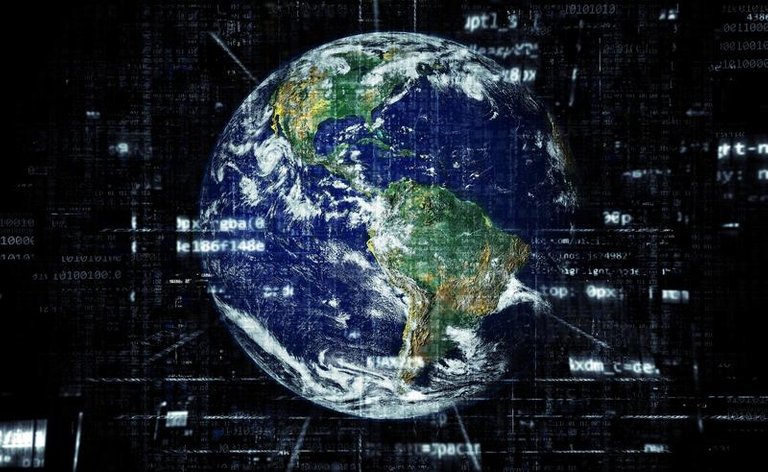
It is 1960, the middle of the Cold War. Nuclear threat is the highest it's ever been and the American government—as paranoid as they always are—believes that the Russians are crazy enough to pull the trigger. They are concerned about their military's reliance on communication. They know one blow from the Russians will cripple their entire communications grid .
So they hatch a contingency plan. A system without a central communication tower; a decentralized system. If the Russians take down one station, the rest will pick up the slack. The plan is perfect. The military teams up with the brilliant scientists of the University of California. They come up with the Arpanet.
The war subsides, but the project lives on. Breakthroughs are made. Universities build a system where they can share information with one another. They call it the NSFNET project. Years go by, the tech evolves. Arpanet and NSFNET give way for the World Wide Web. But it doesn't end there.
The 90s come with the dotcom boom. Websites and internet companies begin their rise to power. Brendan Eich invents JavaScript in 10 days; the web is bursting and teeming with life. The web 2.0 is born.
Time flies again and the web grows bigger than it has ever been. Small wide-eyed hobbyists rise and innovate. Information, products, and services move at the speed of e-commerce and over a billion unique websites live and breathe, but there's a problem.
60% of all traffic in this digital universe revolves around just 50 sites. The small wide-eyed hobbyists become big, powerful empires--the giants of tech--and they tilt the balance of power in their favor. Net neutrality is repealed and the chains holding the telecom beasts are unshackled. The greedy middlemen with nefarious intentions; innovation is not what they seek. They quickly capture the information highway's inner-streets while the giants shape the internet into what they want it to be. They hold all the keys, they make all the rules. Privacy begins to fade and censorship takes its place as the rules and regulations imposed by these tech giants and telecom beasts for the future of the internet decimate the digital landscape.
A perfect internet exists, up yonder. Internet as it was intended. Internet by the people, for the people. The web 3.0; the decentralized web. Owned by everyone, controlled by no one. But now there's a struggle for this future. The vehicle that will transport us all at incredible speed—the speed of 5g—is being built, or maybe it already has been. The future is unknown, but it's coming. Are you ready?
Sources
History.com
Live Science
The Wired
cnbc
Havard News
National Affairs
With haven't seen it all with technology. It keeps advancing and new discoveries are found. In the next 20 years, obviously what we have now would be obsolete.
Congratulations @freeknowledge! You received a personal award!
You can view your badges on your Steem Board and compare to others on the Steem Ranking
Vote for @Steemitboard as a witness to get one more award and increased upvotes!